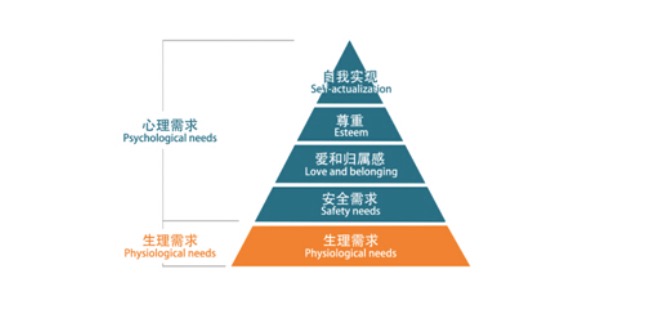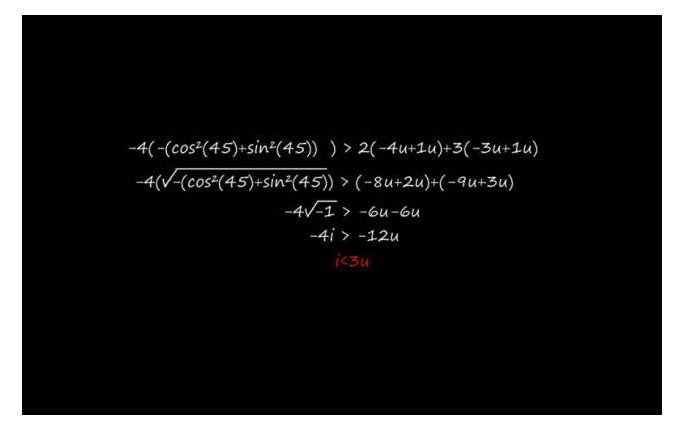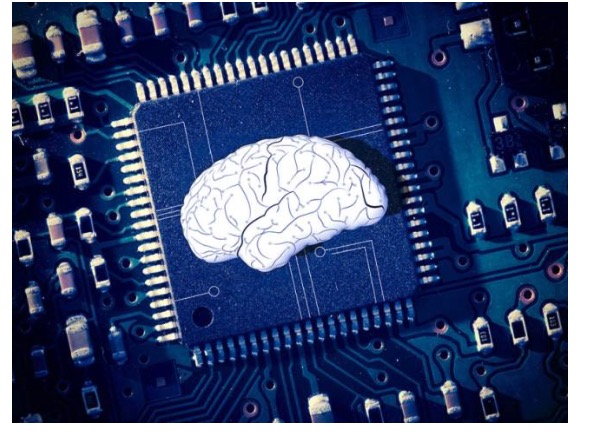I've heard that reading like this can make a lot of money.
Author: Inventors quantify - small dreams, Created: 2016-12-26 12:21:34, Updated:I've heard that reading like this can make a lot of money.
Hey, I read a good book recently, do you want to know? It's hard, simple things get complicated, things that people can understand, reading doesn't help. The air is awkward at this moment...
He thinks that reading is useless because he has heard a certain knowledge in a book you mentioned, which he happened to have heard at some previous accidental moment, but then he inertly translates what he knows in a certain accidental moment into a whole disc, thinking that he knows everything. Many problems in life are also problems of probability. Some people think of chance as a total, and so they get inflated; some people know that chance and difference equals total, and so they progress slowly.
Good people think with probabilities, not with small probabilities, because one cannot eat with chance and luck all one's life.
So, how do you effectively turn a book into a fortune, and what is it about reading that the cowboy hasn't told you?
-
Find directions:
- 1.阅读的需求模型
I don't know if you've had this experience: The long-awaited hope of relieving the work pressure by traveling, but most of the time spent in the hotel as the years went by, has become unable to remember where I had been. Such a trip, pursued by a feeling of filtering, rather than reading the world, reading the history of all places.
Similarly, many people want to release their stress through reading, but the pursuit is also a feeling of being overwhelmed and not really able to unlock the Da Vinci Code of every book.

Finding the ideal self means finding specific needs. Expand your interests from needs, and only driven by interests will you be effective, otherwise you will be reading for reading'.
However, it is not enough to simply find the need, but also to have a sense of belonging.
- 2.代入感
If you read a book only from a third-person perspective, it may be nothing more than grass. Reading, therefore, requires a sense of substitution. So, starting from the author's point of view, find a resonance point, copy his most central essence, because each book is a crystal of the author's years of reading, experience as a whole.
Learning to replicate one's core value experience
-
I'm not going to go into detail about how to do it, but I'm going to go into detail about how to do it, and I'm going to do it.
- 1.横向耕织
The structure of the human brain makes it very lazy and difficult for us to think in linear ways, which is also the difficulty of learning mathematical formulas. It is for this objective reason that most fragmented reading does not bring any benefit to our lives.
When you go to school, your math teacher leaves you a mathematical formula, and your first reaction is to exclude it, which is difficult. But when she explains to you how to use it until you're done, you'll find that the world of mathematics is also quite interesting.
Similarly, some partners aspire to become a tech-savvy investor, so they see only the tech side of the equity and look at a lot of tech-toolbooks, only to find that they are losing out.
The most intelligent people have discovered that the best manipulator must be the leader of the market, both technically savvy and focused on the topic of psychological investments, fundamental analysis, so to cross-pollinate is to constantly read all kinds of tools (learn more formulas), to explore new territories, to stand on a higher perspective of things.
Recently, there has been a lot of discussion about whether fragmented reading will lead to a decline in literacy rates for the general population, and how to maximize the benefits of fragmented reading.
- 2.纵向采集
Or in the case of algebra, when you learn a formula, the teacher will ask you to do more problems, and when you have mastered a few problems, you will find that you have mastered the specific application of the formula.

Similarly, if in the methodology of reading, you first learn to weave horizontally and read all kinds of tools, you will find that fragmented reading is the most useful at the moment. Because through reading all kinds of tools, you learn all kinds of formulas, and through fragmented reading, you master the specific application of these formulas.
Thus, vertical selection is essentially a fragmented reading of science; this is also the benefit of reading history and literature books.
For example, when I read Maslow's toolkit on motivation and personality, I learned that there are several levels of human needs, and then I went back to reading the book on need, and I found that several levels of needs have different expressions in different countries, in different business environments.
Once the need is found, it will be possible to develop new formulas by means of horizontal collection, and it will be possible to improve the scope of each formula by means of vertical collection.
- 3.学会串联
The purpose of reading a book is to read the book in a line, to connect the logic of the chapters, that is, to have a sense of what the author's main line of logic is from the first to the tenth chapter, which is the most important thing.

It is recommended to go back to the catalogue after reading a chapter and think about why the catalogue is set in this way and what the catalogue of the next chapter has to do with this chapter. Many people read a book as a random reading, which leads to not knowing the logic of the book even after reading it, let alone being able to think deeply.
Even if you follow the above process, you still need to build feedback, otherwise you can only talk about it and you can't make a knowledge transformation.
- 4.反馈机制
Now that you've defined what you want to be like, known the different needs of your ideal self, found the different tools to meet those needs through horizontal weaving, and learned the different scope of application of these formulas through vertical collection. But the world is changing, and sometimes a condition needs to be put into another specific context and specifically combined with the reality. Then it's time to validate the alpha formulas you've learned through examples, so they can really serve the reality.
The process of verification is a kind of feedback, and it is only through feedback that one can know how to apply these alpha formulas to oneself. The greatness of Jobs is not in his inventions, but in the fact that he created enormous social wealth by modifying something from someone else into an innovation that meets the needs of society.
Or, as Maslow says in his book, The Human Needs Theory and The Needs of Personality, when I know the level of human needs, I also know the types of needs that are commercially successful, but if I stop at that point, they become a conversation I'm bragging about at the dinner table, it doesn't work.
But if I learn to build feedback, and I learn these things, and I put them into my specific work, I know how I can turn them into my own alpha formula to make the transformation of knowledge. For example, we have built feedback mechanisms in the training of Siddho-kin, knowing that investors in the Chinese market are more demanding on the security of their funds, so we will focus on developing their control.
Feedback is actually an application, like I learned a theory today (a formula), and then I applied it, and I got a lot of interest if I benefited from it. It's also a self-motivation effect, doing everything, having to find a stimulus point, otherwise the passion will eventually go away.
5.建立关联
- The first step is to build a system by linking it to other books.
I've read several books that make this connection: reading motivation and personality, discovering the commonality of human needs: Maslow's hierarchy of needs, reading demand, discovering the commonality of needs in specific expressions in different industries, reading positioning, knowing how to find people with such needs, reading social psychology, knowing how to stimulate the needs of this type of population.
(2) To make a connection with the environment, to constantly think about what the environment has to do with what I extract from the above scientific methodology. This is also essentially an exercise. Messi became Messi because he could practice hundreds and thousands of hours of one shot, which is a deliberate practice that we ordinary people cannot do. In fact, any professional player, in a non-confrontational environment, is at a level that we ordinary people cannot reach, which is also the 10,000-hour theory that I spoke about last week.
In the end, you will probably feel that reading is more boring because of psychological factors.
- 6.养成习惯
In general, habits can be formed in purposeful, planned training, or they can be formed in the unconscious state. While good habits are necessarily formed in conscious training, spontaneous formation in the unconscious is neither allowed nor possible, which is the fundamental difference between good habits and bad habits.
Just like with fitness, you'll be tired at the beginning, but if you break through the platform, you'll find that you'll fall in love with fitness. So is reading, so when you read a book, someone who can stick to 60 pages might finish it, but if they can't stick to it, there's no talking about progress.
-
Summary
The meaning of reading is that the transformation can once again promote the interest in reading, and then continue to progress, and this Matte effect has also made many successful people and ordinary people build an insurmountable knowledge barrier. In order to stimulate linear thinking, the summary section is no longer the above outline of the content here, everyone can review the above content, and then do self-reflection.
Back to the beginning of the article, if you are reading and your friend tells you that you can't read without using your tongue, I hope you don't fall into deep self-doubt.
And finally, there's more than stocks, there's a lot of good stuff, which I'll be sharing here every week.
This issue has just been launched and has no open comment rights, today you can share this idea of reading with your loved ones through this article, and let TA know that knowledge can also be turned into wealth, and let TA know that you also have a love of reading.
Translated from Siddhoquin's House
- A brilliant explanation for the alternative to stop loss
- OkCoin China API error code requested
- 2.12 _D (()) Function and Timestamp
- python: Please be careful in these places.
- A synergistic understanding of intuition
- The hidden Markov model
- Interested in understanding the simplicity of Bayes
- 2.11 API: Simple example of use of Chart function (graph function)
- Details of the currency pair
- Beware of the Linear Mind Trap
- The story of the escape and the survival of the gambler and the gambler
- 30 lines of code that takes you into the world of quantitative investing (python version)
- Gambling is a form of high-tech business
- The quantity-price relationship is an important indicator!
- A strong demand for the platform to add do-as-you-go retargeting
- How to read the Big Three financial statements in a way that's interesting and interesting?
- Mathematical thinking in investment finance, how many have you done?
- Why slippage occurs in programmatic transactions
- The core of money management -- the choice of leverage
- Financial knowledge